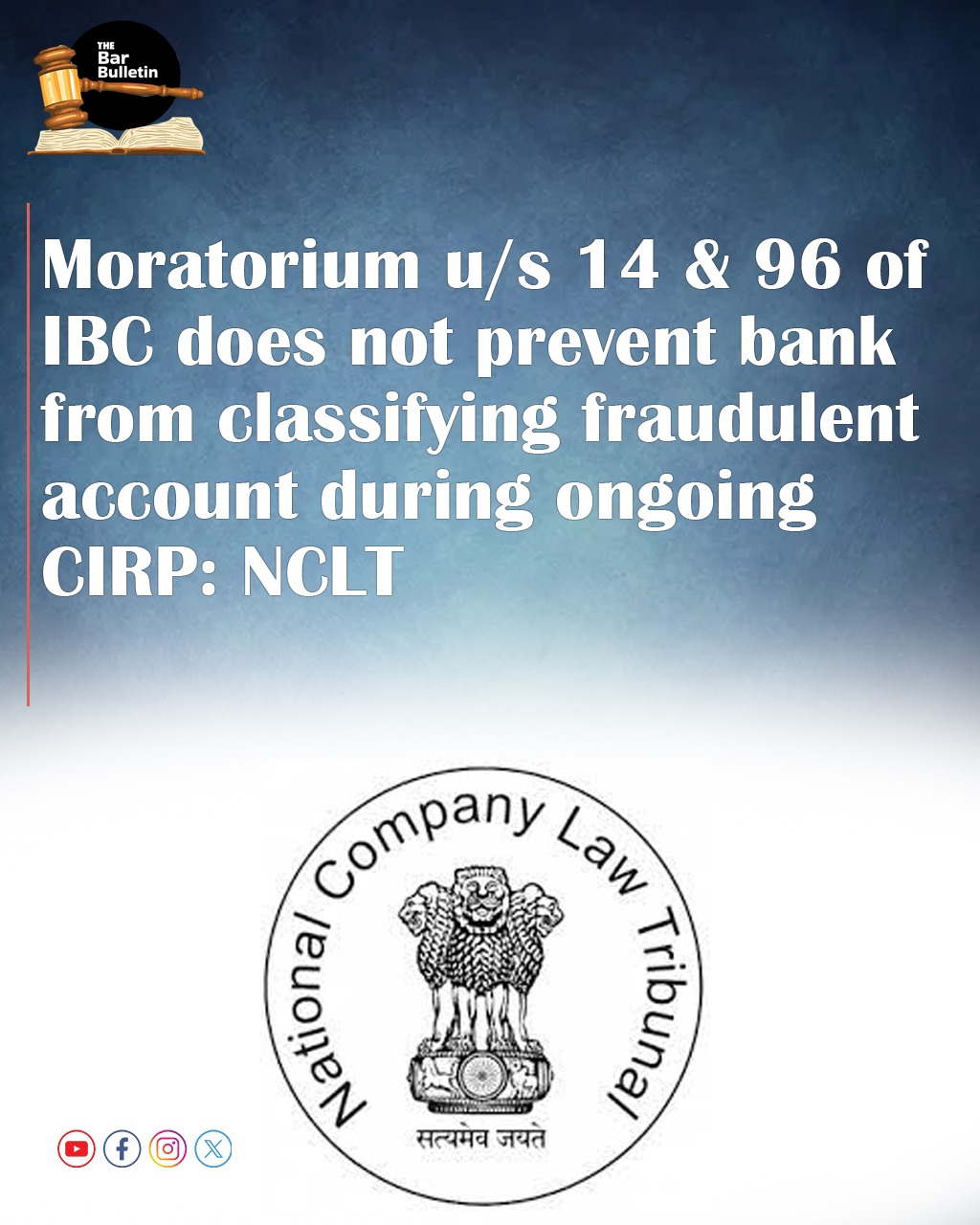The Mumbai NCLT clarified that the banks can classify a Corporate Debtor’s account as fraud even while a Corporate Insolvency Resolution Process (CIRP) is ongoing, and Section 14 of the Insolvency & Bankruptcy Code, 2016 (IBC) does not bar such classification as such classification is neither in nature of the institution of suits or continuation of pending suits or proceedings against the corporate debtor or an action to foreclose, recover or enforce any security interest created by the corporate debtor in respect of its property.
While emphasizing that the Corporate Insolvency Resolution Process (CIRP) and Fraud Identification are separate processes with different objectives, the Division Bench comprising Justice (Retd) Mr. Virendrasingh Bisht (Judicial Member) and Prabhat Kumar (Technical Member) observed that moratorium under Sections 14 and 96 of the Insolvency and Bankruptcy Code, 2016 (IBC) does not prevent the banks from identifying and classifying a Fraudulent Account, as the same lies within its administrative decision, and thus, the banks can classify a Corporate Debtor’s account as fraud even while a is ongoing.
In the present case, the Resolution Professional of the Corporate Debtor had sought directions for setting aside the Letter issued by the Respondent Bank in respect of classifying the Corporate Debtor’s account as Fraud in contravention of the Moratorium that is in operation as per Section 14 of the IBC. It was claimed that since the Respondent Bank is also a part of the Committee of Creditors (CoC), which has approved the Resolution Plan with 100% of voting shares, and the same is at the conclusionary stage, the said letter would cause impediment in the smooth conclusion of the CIRP.
The NCLT, however, clarified that its role is to ensure the integrity of the CIRP and address any fraudulent activities within that context, but not to directly overturn a bank’s independent classification of an account. The Tribunal also emphasized that banks have the discretion to classify accounts as fraud based on their internal policies and Regulatory Guidelines. Accordingly, the NCLT refused to interfere in the bank’s communication, classifying a Corporate Debtor’s account as fraudulent during the CIRP.
Appearances:
Advocate Muskan Sengar, for the Applicant

